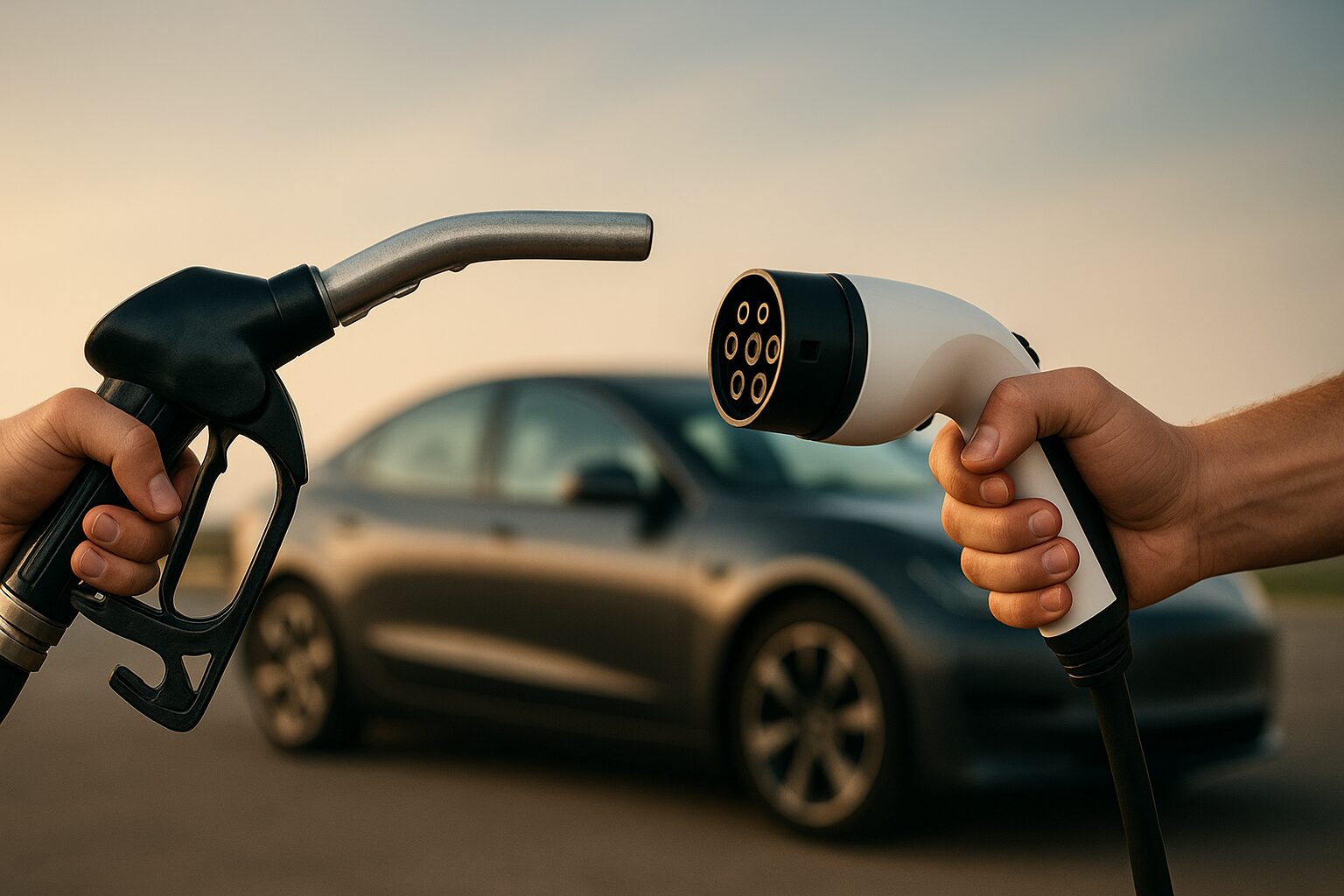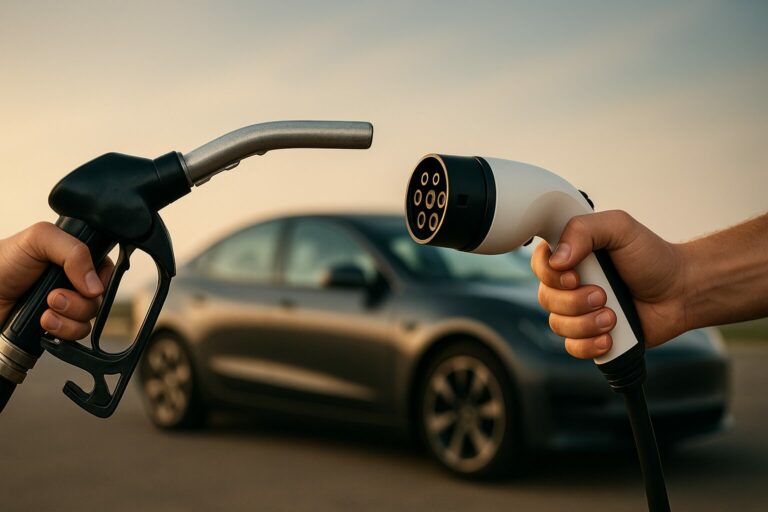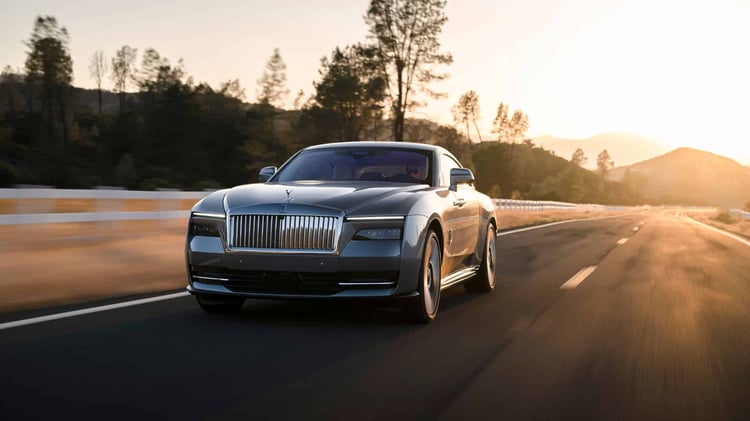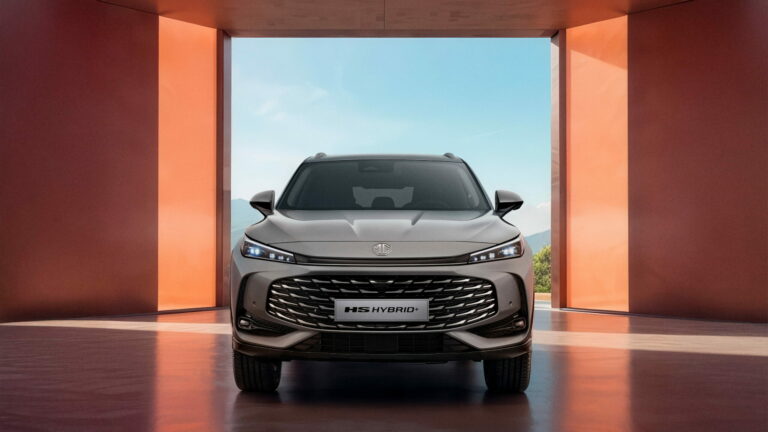Buying an electric car is a significant cost for the wallet, often between €35,000 and €40,000 for an average model. But in the long term, what are the real savings? Between fuel, maintenance and public subsidies, how much will you really save by opting for an electric car rather than a combustion engine?
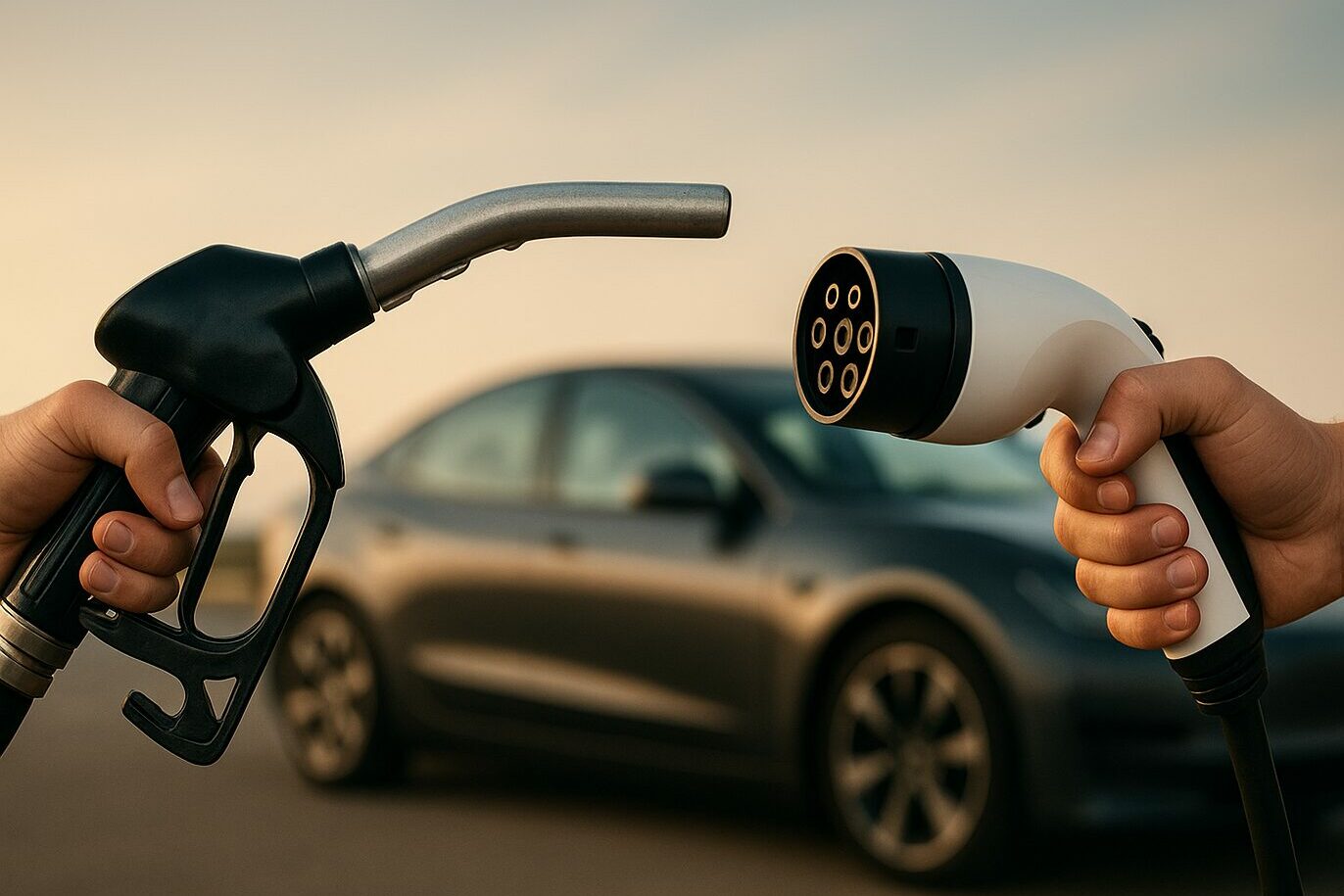
The choice between an electric car and a petrol or diesel car is not always a question of ecology. For many drivers, it’s more a question of money. An electric car generally costs between €35,000 and €40,000 to buy, compared with €15,000 to €30,000 for a combustion engine car. The difference is significant. But in the long term, electric cars can be cheaper thanks to savings on fuel, maintenance and the financial aid available.
To better understand, let’s imagine a concrete example: a person drives 300 km a week.
- With a petrol car, it consumes around 7 litres of petrol per 100 km.
- With an electric car, it uses 17 kWh per 100 km.
It should be noted that this data can change depending on a number of factors: the weight of the vehicle chosen, speed, driving style, ambient temperature and road typography.
Petrol costs around €1.70 per litre, and electricity €0.20 per kWh.
Over a week: the first signs of savings
In the short term, the differences may seem insignificant. Over a week, a combustion-powered car costs approximately €36 in fuel to cover 300 km, compared with just €10 for an electric car. Even if the difference seems small over a week, it already shows a clear advantage for the electric car: it costs much less to fill up, and you don’t have to recharge as often as a combustion car.
Beyond the cost, the electric car also brings real comfort to everyday life. It offers the peace of mind that many motorists are looking for. No need to keep track of fluctuating petrol prices or make detours to the service station. Recharging can be done in the comfort of your own home, at night or while you’re at work. It saves you time and the stress of repeated fill-ups. What’s more, driving is often quieter and smoother, making journeys more pleasant and less tiring.

Over one month: a confirmed advantage
If you multiply these figures by four weeks, the energy bill rises to 144 euros for a combustion engine, compared with just 40 euros for an electric car. The monthly saving is therefore around 104 euros.
This amount, which may seem modest over a short period, takes on a whole new dimension when projected over a whole year. Over twelve months, the savings become significant: they can offset some of the expenses associated with vehicle maintenance, insurance or even certain unforeseen costs. For long-distance drivers, this financial advantage is even greater, because the further you drive, the wider the gap between electric and petrol vehicles.
Another point not to be overlooked is recharging. Electric car owners often benefit from preferential rates, whether for charging at home – particularly at night, when electricity prices fall – or at certain public charging points. Depending on the region, the energy supplier or promotional offers, these costs can fall even further. The result is that, over time, the difference in budget between you and a combustion-powered vehicle becomes more and more marked.
Over one year: concrete results
Over a full year, the figures become significant: €1,728 for a combustion car, compared with €480 for an electric car, giving an annual saving of around €1,248.
This difference is not limited to fuel. Electric vehicles generally cost less to maintain: there are no regular oil changes, fewer mechanical parts to break down, and a mechanically simpler engine. Some studies estimate that the annual maintenance costs for an electric car can be 30-50% lower than for a combustion engine. Over ten years, this represents several thousand euros in additional savings.
In practice, over the years, the total cost of an electric car can become equal to or even lower than that of a combustion-powered car. The savings come from fuel, maintenance and sometimes financial assistance. For those who drive a lot every year, these savings can quickly become significant.
Over 10 years: the advantage becomes obvious
If we project these calculations over 10 years, the cost of fuel alone rises to 17,280 euros for combustion engines, compared with just 4,800 euros for electric cars. Total savings therefore exceed €12,400, which more than makes up for the higher initial investment.
But the long-term benefits go beyond fuel economy. Reduced maintenance, ecological bonuses and easier resale in a market that is moving towards electric cars reinforce these benefits. Conversely, combustion-powered cars can lose value more quickly, especially in areas with increasing restrictions on polluting vehicles.
With rising fuel prices, electric cars are becoming even more attractive in the long term. Over ten years, every kilometre driven represents a real saving, on top of the gains already made thanks to reduced maintenance and possible grants.
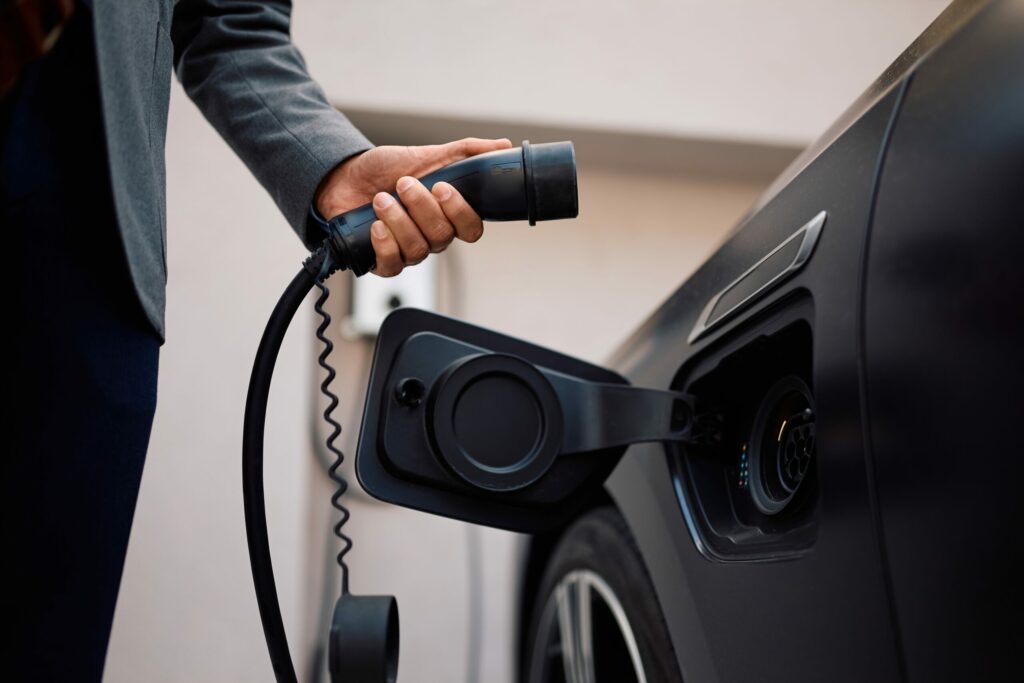
Beyond the figures: factors to consider
If we consider fuel and maintenance alone, the advantage of electric cars is already clear. But other factors reinforce this logic:
- Changes in urban regulations: many towns and cities are gradually banning the most polluting internal combustion vehicles. This can not only reduce their resale value, but also limit their access to certain areas.
- Insurance costs: some insurers offer preferential rates for electric vehicles. This is due to a generally more cautious driving profile and the presence of advanced safety technologies. It reduces the risk for the insurer.
- Environmental impact: although this is an indirect argument, it remains very important for many motorists. What’s more, choosing an electric car often allows you to benefit from tax incentives, environmental bonuses or other financial aid, making it even more attractive from an economic point of view.
In the short term, the savings associated with electric cars may seem modest. But they quickly become tangible over a year and truly significant over ten years. The higher initial cost is more than offset by the savings on fuel and maintenance, while providing real environmental benefits. For regular drivers or those who cover long distances, going electric is therefore becoming an increasingly logical choice, both financially and environmentally.

